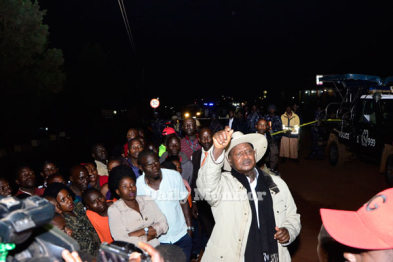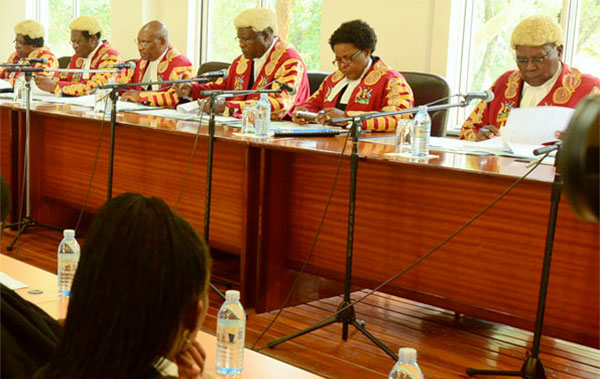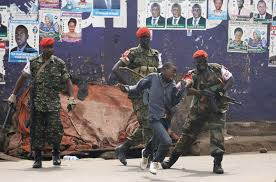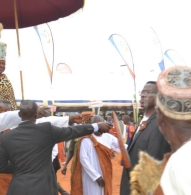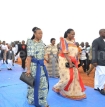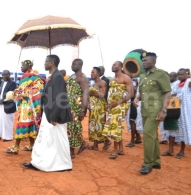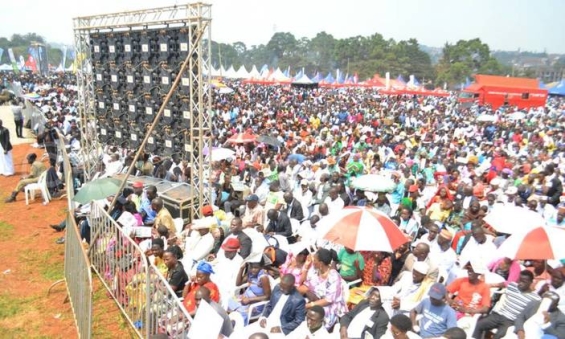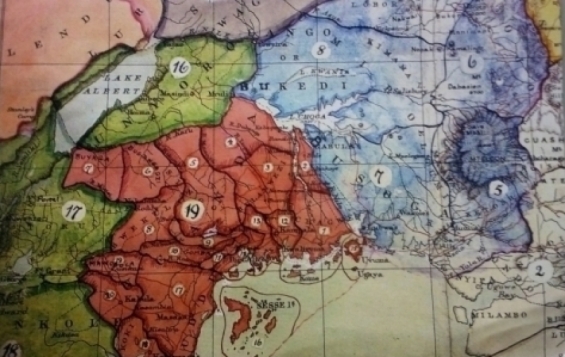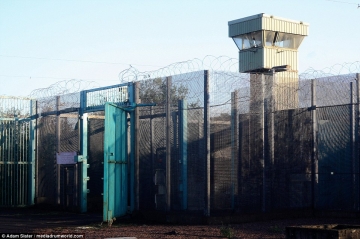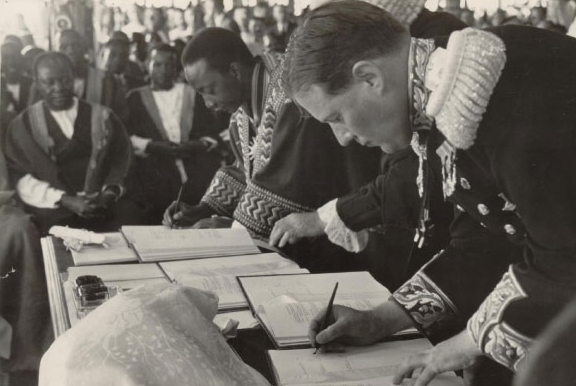In May 1972, Provisional IRA prisoners in Crumlin Road Jail, Northern Ireland, started a hunger strike for the right to be treated as 'prisoners of war'. At the time, the British government of Conservative Prime Minister Edward Heath was in ceasefire talks with the Provisional IRA. Northern Ireland secretary William Whitelaw acceded to the prisoners' demands, conferring 'special category' status on those convicted of terrorism-related offences.
In 1976, the new Labour government ended Special Category Status amid concerns that it was undermining prison discipline. Anyone convicted of terrorism-related offences after 1 March that year would be treated as an ordinary criminal. They would be imprisoned in the new, purpose-built 'H-Blocks' of the Maze prison and would have to wear prison uniform and do prison work.
HM Prison Maze was built on the disused Long Kesh RAF base, south-west of Belfast. Paramilitary prisoners had been held in 'long huts' there during 'internment' (imprisonment without trial) from 1971 to 1975. The new, distinctively-shaped 'H-Blocks' were to become the centre of protest over 'special category' status.
Protests began in September 1976 when Kieran Nugent, a Provisional IRA member, entered the Maze and refused to wear prison clothes. He was not provided with an alternative so dressed in a blanket, starting what became known as the 'blanket protest'. By Christmas, there were more than forty so-called 'blanketmen'.
In 1978, republican prisoners began a 'no-wash' or 'dirty' protest after disagreements with prison authorities over sanitary facilities and accusations of brutality. The situation escalated, with prisoners smashing their furniture, refusing to wash or to leave their cells and ultimately smearing cell walls with their own excrement.
When a hunger strike was proposed, the external leadership of the Provisional IRA was opposed, fearing it would divert attention away from its campaign of violence. With republican prisoners determined to act, the Provisional IRA leadership gave way. On 27 October 1980, seven prisoners at the Maze refused food.
Prisoners in the first hunger strike made five demands: the right to wear their own clothes; the right not to do prison work; the right to freedom of association; the right to organise their own leisure activities; and the right to restoration of lost remission (reduction of sentence).
The seven hunger strikers called off their strike 53 days later, mistakenly believing their demands had been met by the British government, by now a Conservative one led by Margaret Thatcher.
When it became clear their demands hadn't been met, a second hunger strike was organised, beginning on 1 March 1981. It was led by Bobby Sands, leader of the Provisional IRA prisoners in the Maze. Sands made the strategic decision to organise the new strike with a staggered start. A new prisoner would join each week, thereby creating sustained pressure on the British government. The dirty protest was called off so attention could be focused on the second hunger strike.
Four days after the strike began, the MP for Fermanagh-South Tyrone died suddenly. Sinn Fein, a republican political party associated with the Provisional IRA, nominated Sands for the vacant seat. On 9 April, he was elected. Sands' new status as an MP created huge media interest, but the British government made no concessions and Sands died on 5 May 1981, 66 days after he first refused food.
Within two weeks of Sands' funeral, three more strikers had died: Francis Hughes, Raymond McCreesh and Patsy O'Hara. The position of the British government remained unchanged.
In June, negotiations with the hunger strikers began when the Irish Commission for Justice and Peace approached the British government's Northern Ireland Office with a series of proposals. At the same time, parallel discussions were being held between the British Foreign Office and the external leadership of the Provisional IRA. By the end of July, the British government had made concessions on everything except freedom of association, but there was still no agreement and two more hunger strikers, Joe McDonnell and Martin Hurson, had now died.
With further concessions unlikely, many prisoners' families, local Catholic clergy and the external leadership of the Provisional IRA supported an end to the protest. On 31 July 1981, Paddy Quinn's family took him off the strike, but this was followed by the deaths of three more prisoners - Kevin Lynch, Kieran Doherty and Thomas McElwee. On 20 August, Michael Devine died. On the same day, the wife of another striker, Pat McGeown, agreed to him receiving medical attention. By 6 September, four more hunger strikers were being given medical attention. On 3 October 1981, the remaining hunger strikers ended their protest.
The new Northern Ireland secretary, James Prior, welcomed the prisoners' decision. Three days later he announced that prisoners in the Maze could wear their own clothes. Other privileges were restored and over time the hunger strikers' demands were substantially met, but the British government never made formal recognition of the prisoners' right to political status.
During the 217 days of the protest, ten strikers died; seven from the Provisional IRA and three from the Irish National Liberation Army (INLA). Outside the prison, the death toll was considerably worse, with 61 people killed in sectarian violence during the seven months of the strike.
Despite the failure to win all the concessions sought, many republicans viewed the strike as a success. It had attracted massive attention to their cause and led directly to the rebirth of Sinn Fein as a political movement. When Bobby Sands' parliamentary seat was held with an increased majority by his election agent, Owen Carron, it did much to convince key republicans that they should re-enter the political process, using a twin strategy of the "Armalite [a type of gun] and the ballot box" to achieve their aims.






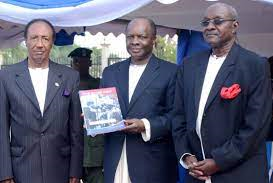
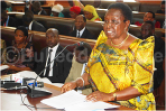
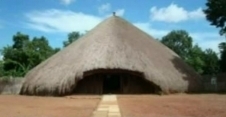
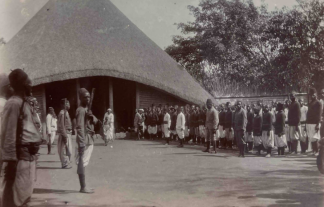













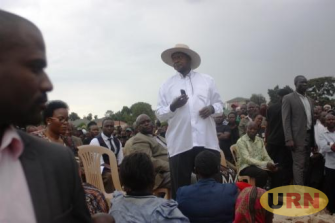
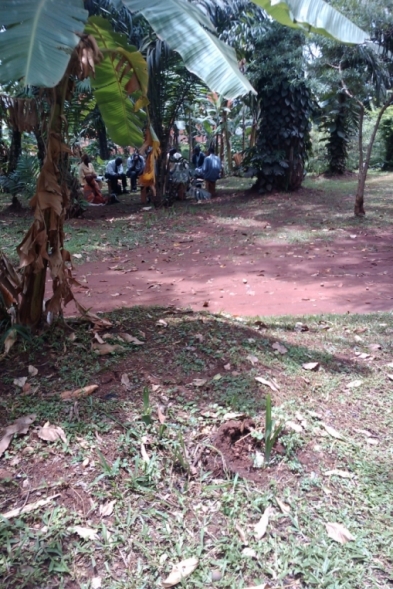


 Omwana ng’asaasira Bobi Wine okukubwa nokutulugunyizibwa aba magye ga Uganda gye buvuddeko. Era nga abamagye ga Uganda bamaze okumukuba nokumusiba omwezi gumu, nebalagira Military Police ya Uganda okumuteekako omusango gwokulya munsi ye olukwe nebane abalala nga 18!
Omwana ng’asaasira Bobi Wine okukubwa nokutulugunyizibwa aba magye ga Uganda gye buvuddeko. Era nga abamagye ga Uganda bamaze okumukuba nokumusiba omwezi gumu, nebalagira Military Police ya Uganda okumuteekako omusango gwokulya munsi ye olukwe nebane abalala nga 18!

